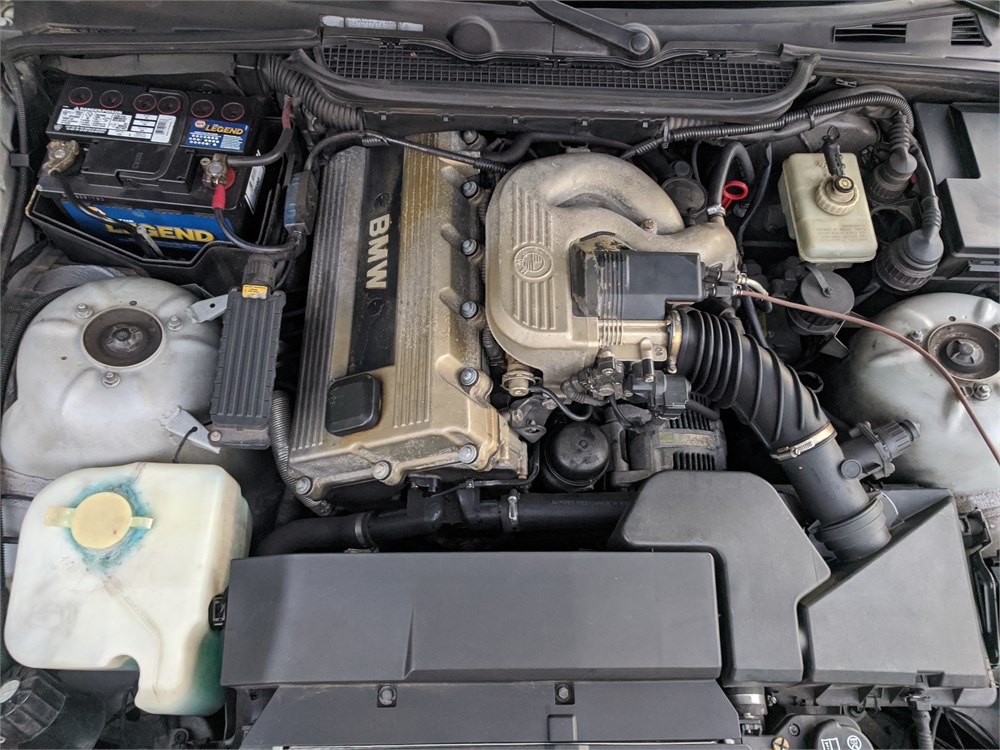Secret Functions to Try To Find When Purchasing an Engine for Automotive Applications
When considering the purchase of an engine for automotive applications, numerous vital attributes necessitate mindful examination to make sure ideal performance and functionality. From power and efficiency abilities to sustain resilience, efficiency, and adherence to discharges criteria, each facet plays an important role in identifying the engine's viability for certain automobile needs. In addition, cost-effectiveness stays a pivotal consider the decision-making process, stabilizing quality with economic considerations. These features collectively add to the overall performance and reliability of the engine, affecting the driving experience and long-term satisfaction of the individual.
Power and Efficiency
When selecting an automotive engine, customers focus on power and performance to guarantee optimum driving experience and effectiveness. A well-performing engine not only supplies power effectively but also runs smoothly throughout different speed arrays and driving conditions.
Customers usually think about the engine's torque output along with its power score. Torque, measured in pound-feet (lb-ft) or Newton-meters (Nm), mirrors the engine's rotational force, affecting the car's ability to tow, climb slopes, and accelerate from grinding halt. A balance in between power and torque is critical for accomplishing a receptive and flexible driving experience. In addition, elements such as engine turbocharging, crossbreed, and displacement modern technologies play considerable duties in enhancing both power and efficiency levels. Eventually, picking an engine that provides a powerful mix of power and performance makes sure a reliable and satisfying driving experience. bmw 318ti.
Fuel Effectiveness
Enhancing fuel performance is a critical factor to consider for consumers when reviewing automobile engine alternatives. The performance of an engine straight affects operating expense and environmental footprint. One essential variable affecting fuel efficiency is the engine's style and modern technology. Modern engines with features like straight gas injection, turbocharging, and variable valve timing can considerably enhance gas efficiency by enhancing burning processes and decreasing power loss. In addition, the overall weight of the engine and car, along with the aerodynamics, play essential functions in determining fuel usage.
Toughness and Reliability
Attaining long-lasting efficiency and dependable operation is crucial for consumers reviewing the sturdiness and integrity of automotive engines. When considering an engine for auto applications, resilience describes the engine's capacity to withstand wear, anxiety, and harsh operating conditions over an extensive duration. Reliability, on the other hand, suggests that the engine can regularly execute its desired function without unforeseen malfunctions or failings.
Customers should search for engines built with high-grade materials and accurate design to ensure durability. Parts such as bearings, pistons, and crankshafts should be durable to deal with the engine's power outcome without premature wear. Furthermore, engines furnished with advanced air conditioning systems, effective lubrication, and robust filtering systems have a tendency to display higher levels of reliability.
Regular upkeep and adherence to maker referrals are likewise critical consider maintaining an engine's longevity and integrity. By adhering to upkeep routines, using recommended liquids, and resolving any kind of problems quickly, consumers can maximize the life-span and efficiency of their automobile engines. Ultimately, focusing on longevity and dependability in engine selection can cause an extra gratifying ownership experience with fewer unanticipated disruptions.
Discharges Compliance
Making review certain compliance with emissions laws is a critical element of reviewing vehicle engines for environmentally conscious consumers. With raising worries about air top quality and environmental influence, stringent emissions requirements have been established around the world to decrease damaging contaminants released into the atmosphere. When purchasing an engine for auto applications, it is vital to consider its emissions conformity to reduce the carbon impact and follow legal requirements.
Modern engines are furnished with advanced discharge control technologies such as catalytic converters, exhaust gas recirculation (EGR) systems, and careful catalytic decrease (SCR) to reduce dangerous exhaust gases like nitrogen oxides (NOx), carbon monoxide (CARBON MONOXIDE), and hydrocarbons (HC) These systems play an essential function in ensuring that the engine meets the defined exhausts standards and operates within allowable limits.

Cost-effectiveness
When considering vehicle engine purchases, evaluating cost-effectiveness is vital for customers seeking both efficiency and worth. It encompasses the general costs connected to maintenance, gas intake, and possible repair services over the engine's lifespan.
Engines that are made to make the most of fuel economic climate can lead to substantial cost savings over time, specifically for individuals that drive regularly or over long distances. bmw 318ti. In addition, considering the accessibility and affordability of extra parts and maintenance can add to the overall cost-effectiveness of an engine.

Final Thought
Finally, when acquiring an engine for automotive applications, it is important to think about crucial attributes such as power and efficiency, fuel efficiency, reliability and sturdiness, discharges compliance, and cost-effectiveness. These elements are important in guaranteeing that the engine satisfies the requirements of the vehicle and runs properly in numerous driving conditions - bmw 318ti. Making an informed decision based upon these requirements will eventually lead to a successful and reliable automobile engine purchase
From power and performance capacities to fuel durability, adherence, and performance to emissions standards, each aspect plays an essential function in figuring out the engine's suitability for details automobile demands. Engines created to run on alternative gas such as electrical power, crossbreed systems, or biofuels can use improved fuel economy and lower exhausts compared to typical gas or diesel engines. Customers should meticulously take into consideration the fuel performance ratings and my review here modern technologies incorporated into auto engines to make informed getting decisions that line up with their top priorities for cost savings and sustainability.
When taking into consideration an engine for automotive applications, longevity refers to the engine's capability to hold up against wear, stress, and extreme operating problems over an extended period.In final thought, when acquiring an engine for auto applications, it is essential to think about key functions such as power and efficiency, fuel performance, integrity and sturdiness, discharges compliance, and cost-effectiveness.
Comments on “BMW 318ti: A Traditional Compact with Classic Allure”